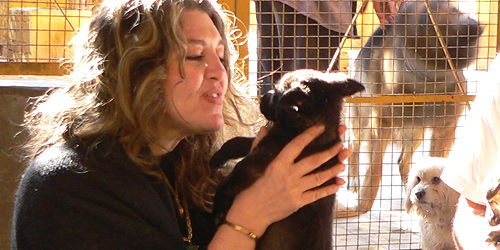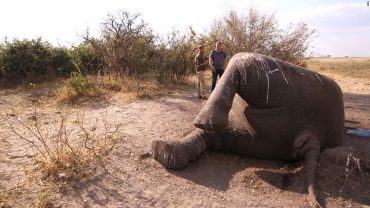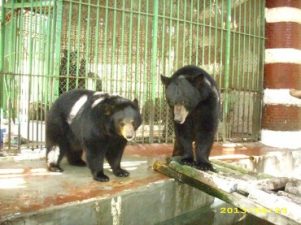 These are just a few of hundreds of sheep that were inhumanely slaughtered in Egypt for Eid.
These are just a few of hundreds of sheep that were inhumanely slaughtered in Egypt for Eid.
Similar to the anti-spirit of Christmas shoppers (but more sinister, perhaps) who start spending themselves into a frenzy as soon as the Halloween candy is put to rest, some Egyptians who celebrate Eid Al-Adha have turned the sharia practice of sacrificing an animal to Allah into a callous, thoughtless, bloodletting.
Not only are skilled and unskilled butchers using methods that are considered Haram, but the bloodbath is also a public health hazard; thousands of sheep, camel and other animals are butchered on the side of a road south of Cairo, their spilled blood running down the street.
According to the Daily News Egypt, the Basateen slaughterhouse south of Cairo is a bustling hive of violence. “Herds” of animals stand in line, waiting to be slaughtered.
A practice that should entail lying an animal on its side (away from other animals so the latter will not be unduly disturbed) and then a swift slice from ear to ear has evolved into a mechanized stabbing fest, with butchers “jabbing” necks of hundreds of animals.
“Reda El-Feqy, a butcher, has been working in the slaughterhouse for 20 years. While he acknowledges that this method is “haram” — religiously forbidden — he says that sometimes they have no other choice,” according to the paper.
“Some hangars aren’t properly equipped and the animals are in a rage and can’t be controlled leaving the butcher no other choice,” Mr. El-Feqy added.
But another butcher is not at all at odds with the practice, and claims that “even in Saudi Arabia” animals are sacrificed in this way.
Activists are enraged. One in particular, Amina Abaza (below), head of the Society for the Protection of Animal Rights in Egypt (SPARE), openly condemns the practice.

“Unfortunately many people’s understanding of Islam is superficial so they buy more than one sheep and slaughter them creating a massive bloodshed; although, this money could be redirected to other more useful things,” she told the paper.
“Some people treat the animals terribly and attempt to slaughter them by themselves, although they can’t, as a way to show off in front of others, thinking that they are implementing the sharia — Islamic law — while what they are doing is forbidden,” she added.
Sheikh Saber Taalab, a former member of the Islamic Research Center claims that certain mechanisms are in place precisely to avoid this kind of wanton behavior.
“Islam has put regulations for the slaughtering process ensuring that the animal is well treated before, during and after slaughtering and those who defy these rules are punished,” said Sheikh Saber Taalab, former member of the Islamic Research Center.
Meanwhile, Australia has banned sheep from being exported to Egypt during Eid festivities, in order to prevent their widespread abuse.
“The purpose of the whole process is shedding blood as a sacrifice to Allah and being merciful to animals is an integral part because the animal will testify on those who maltreated it defying Allah’s orders,” Taalab told the paper.
:: image and story via The Daily News Egypt
More Eid News From the Middle East:



